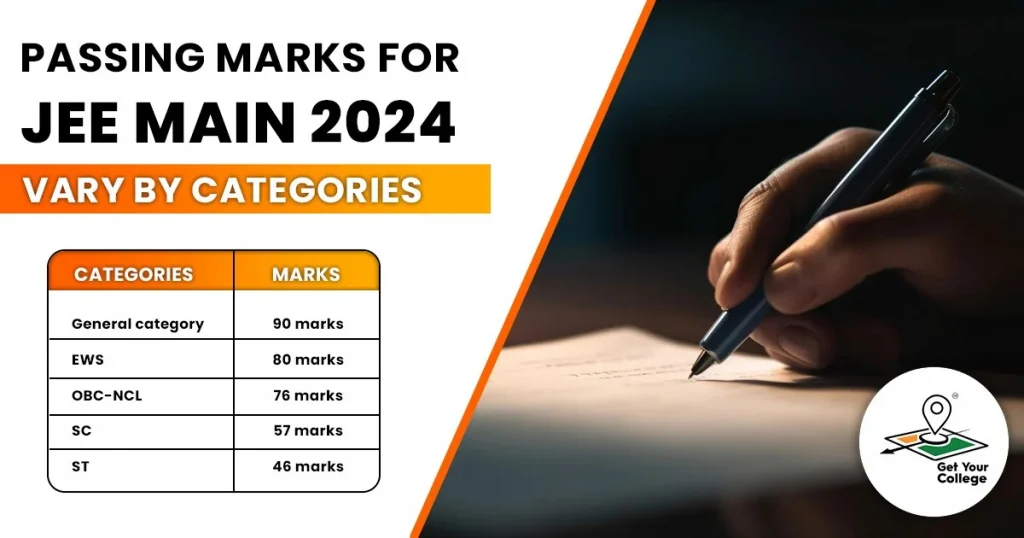Introduction to JEE and Its Concept:
The Joint Entrance Examination (JEE) stands as a formidable hurdle for those aspiring to pursue engineering in India. This comprehensive examination evaluates candidates on their proficiency in physics, chemistry, and mathematics, serving as a pivotal step in their journey towards esteemed engineering institutes.
JEE Main 2024 Successful Conduction:
The year 2024 witnessed the meticulous execution of JEE Main, with thousands of students engaging in a battle of wits against challenging questions. The anticipation surrounding the results, particularly the determination of passing marks, added an extra layer of significance to this year’s examination, making it a critical focal point for aspirants.
Supposed Passing Marks For JEE MAIN 2024:
JEE Main 2024 passing marks represent the minimum percentage or marks required for a candidate to successfully clear the examination. These criteria are determined to ensure a fair and competitive evaluation process. After the announcement of JEE Main 2024 results, candidates can conveniently verify their qualifying marks on the official website of the National Testing Agency at jeemain.nta.nic.in.
Passing marks for JEE Main 2024 vary by categories:

– General category: 90 marks
– EWS: 80 marks
– OBC-NCL: 76 marks
– SC: 57 marks
– ST: 46 marks
The National Testing Agency (NTA) is instrumental in setting these passing criteria for JEE Main 2024.
The establishment of passing marks considers various factors, ensuring a fair and comprehensive evaluation process.
In addition to JEE Main passing marks 2024, the NTA establishes the cutoff for JEE Main, a metric that undergoes annual variations. It is essential to recognize that the JEE Main cutoff is bifurcated into two categories: qualifying cutoff and admission cutoff. This distinction is crucial as it delineates the minimum scores required for merely passing the exam and those needed for admission into specific engineering institutions. Candidates should stay updated with the official announcements and guidelines provided by the NTA regarding JEE Main cutoffs for a comprehensive understanding of their performance.
What Does it Mean to Pass JEE Main:
Passing JEE Main transcends a mere numerical threshold; it symbolizes a triumphant blend of dedication, arduous preparation, and a profound grasp of fundamental concepts. Successfully navigating this stage unlocks opportunities for enrollment in various engineering colleges across the nation, setting the stage for a transformative educational journey.
What Comes After Passing JEE Main:
The achievement of securing a passing mark in JEE Main marks the initiation of a more challenging yet rewarding phase. The focus shifts to JEE Advanced, where candidates must delve deeper into subjects and adopt a strategic problem-solving approach. This transition demands heightened academic rigor, as candidates strive to excel in this more advanced stage of the examination.
Challenges After Passing JEE Main and Appearing for JEE Advanced:
JEE Advanced stands as the gateway to the prestigious Indian Institutes of Technology (IITs), elevating the challenges faced by candidates. Here, the competition intensifies, necessitating a comprehensive understanding of advanced concepts and a higher degree of problem-solving finesse. Time management, conceptual clarity, and mental resilience emerge as pivotal factors during this critical stage.
Top Colleges Attainable by Passing JEE Main:
Amidst the challenges, success in JEE Main unveils a spectrum of opportunities, leading to enrollment in some of the top engineering colleges in India. National Institutes of Technology (NITs), Indian Institutes of Information Technology (IIITs), and numerous state engineering colleges become accessible to those who clear the JEE Main cutoff, offering diverse paths for specialization and growth.
In conclusion, the journey from JEE Main preparation to passing the exam and progressing to JEE Advanced represents a transformative experience. Beyond being a test of academic prowess, it molds individuals into resilient problem solvers, ready to tackle the dynamic challenges in the field of engineering. As the results of JEE Main 2024 unfold, each passing mark signifies not just a numerical achievement but the unlocking of potential for a promising future in the realm of technology and innovation.
FAQs:
Q1. What is the validity period of the JEE Mains score, and how can I use it for admission to various engineering colleges?
A1. The JEE Mains score is typically valid for one academic year. Candidates can use the score for admission to NITs, IIITs, and other participating institutions. It’s essential to check the specific admission criteria of the target colleges and stay updated on any changes.
Q2. Can I use a calculator or any electronic device during the JEE Mains exam, and are there any restrictions on the type of calculator allowed?
A2. Generally, candidates are not allowed to carry electronic devices, including calculators, into the exam hall. However, a basic rough sheet and pen/pencil are usually provided for calculations during the exam.
Q3. What are the specific guidelines for candidates with disabilities taking JEE Mains Session 2, and how can they request accommodations?
A3. Candidates with disabilities can usually request accommodations during the application process. Guidelines for such requests, including required documentation, are available on the exam conducting authority’s website.



